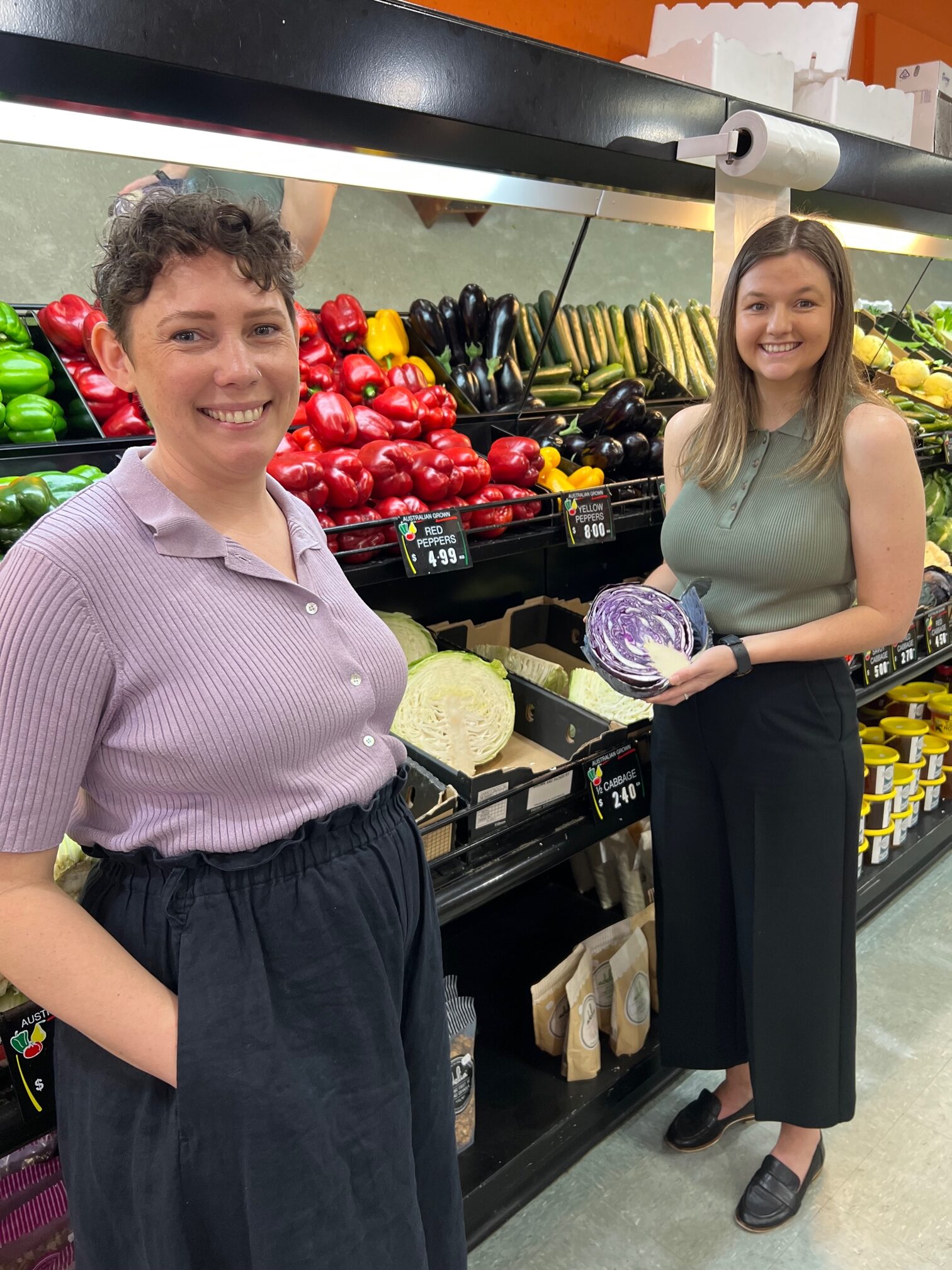


Study conducted by our Health Promotions team finds that eating a healthier diet is cheaper at the checkout.
According to the CSIRO, the current diet of majority of Australian adults includes alcohol, highly processed packaged foods and less fruits and vegetables than the recommended intake, and has shown to be more costly to households, dispelling the myth that maintaining a healthy diet is more expensive.
As part of a local project to measure and monitor food affordability and availability, the team visited a number of local supermarkets and purchased two sets of groceries- one which met the Australian Dietary Guidelines and one which didn’t, and compared prices between the two.
Basket 1 contained the following items sufficient to supply a fortnight’s worth of groceries for a family of four meeting the Australian Dietary Guidelines:
– Fruit and Vegetables (made up 31% of fortnightly shop)
– Grains and cereals (e.g. oats, cornflakes, bread, rice, pasta, Weet-bix)
– Lean meats and alternatives (mince, steak, chicken, tuna, eggs, nuts)
– Milk, yoghurt and cheese
– Oils and spreads (Olive oil)
Basket 2 contained the following which is considered to be the current ‘average Australian fortnightly shop’ for a family of four. Approximately 57% of the fortnightly shop is spent on processed and packaged foods, of which 21% is spent on take-away:
– Fruit and Vegetables (made up 13% of fortnightly shop)
– Grains and cereals (e.g. oats, cornflakes, bread, rice, pasta, Weet-bix)
– Lean meats and alternatives (mince, steak, chicken, tuna, eggs, nuts)
– Milk, yoghurt and cheese
– Oils and spreads (Olive oil, butter)
– Drinks (Soft drink, fruit juice)
– Desserts and snacks (Muffins, sweet biscuits, chocolate, ice cream, potato chips, muesli bars)
– Processed meats (sausages, ham)
– Convenience meals
-Fast food (pizza, meat pie, hamburger, fish and chips)
-Alcohol (beer, wine).
The local study revealed a diet in line with the Australian Dietary Guidelines would cost approximately $156 less per fortnight for a family of four at Warrnambool’s most affordable supermarket1. Whilst the price of the fortnightly shop varied from supermarket to supermarket, what was consistent was that a shop that met Australian Dietary Guidelines was always more affordable than the current standard diet, incorporating alcohol and packaged processed foods. (See table below).

Currently less than 9% of Australian adults and children are eating the recommended 5 serves of vegetables daily – a figure the South West Healthcare Health Promotion team and Nutrition Australia are hoping to change this National Nutrition week which spans from the 15th – 21st October.
“Through our research and the food affordability and availability monitoring project we know that one of the most commonly reported barriers to accessing a healthy diet, is the cost of food and the cost of living,” says Caitlyn Hoggan, South West Healthcare Healthy Communities Coordinator.
“There is a perception that healthy food costs more, but our research shows that eating according to the Australian Dietary Guidelines not only makes us feel good and protects us against disease it can save you money. This provides another reason for people to Try for 5 this National Nutrition Week and get more vegetables into their diet”.
‘Try for 5’ is an annual campaign run by Nutrition Australia which aims to support Australians to eat more vegetables and to raise awareness on the importance of vegetables to our health and wellbeing.
“We know that vegetable intake is foundational to good health. There is a well-established link between increased intake of fruit and vegetables and improved health outcomes. Diets rich in fruit and vegetables have been shown to protect against high blood pressure, heart disease, stroke, type 2 diabetes and some cancers”. Caitlyn Hoggan, South West Healthcare Healthy Communities Coordinator.
“We also know that a well-balanced diet can boost your mood and improve mental wellbeing. Research from Deakin University shows that those who ate more ultra-processed food had a 23 per cent higher risk of depression”.
“We understand that it can sometimes be hard to get 5 serves every day, but every serve of vegetables counts -whether it’s a salad roll, swapping meat for beans or legumes, or some vegetable sticks and dip as a snack. Aim for three different vegetables in every main meal.”
“The Try for 5 website has lots of resources to support people to get more vegetables into their diet, including simple and family-friendly recipes that are guaranteed to help you save on your weekly shop”.
For more information visit https://www.tryfor5.org.au/